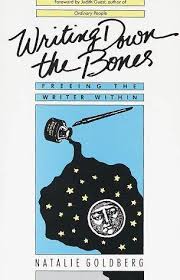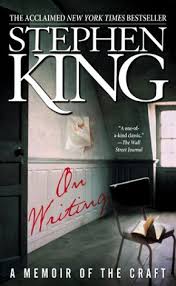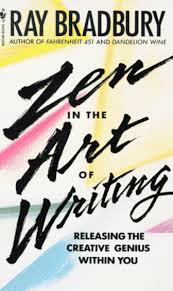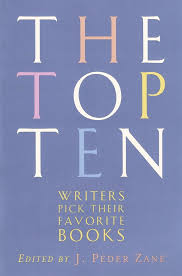1. Promote the Freemium Model
The best thing about the internet is that the vast majority of the important, intelligible and interesting information can be obtained for free. Each time you are introduced to a new concept, a new device or a new product it is a form of advertisement. Each article you read, each blog you subscribe to is advertising other people's ideas and products - usually for free.
The companies that pay for advertising to get in front of you, the consumer, make a lot of the free stuff possible.
If you don't have the money to build a 5,000 book personal library. Go online. You would be amazed at what you can find for free.
(On the Flip Side: Many writers are battling Google against the Library Digitization Project. While I understand that as an artist they want control over their own work, as a reader - a broke, underemployed reader - I love having access to books or at least portions of books through Google. It's better than a local library: No Late Fees!!! If obsessive readers are like me, they'll buy an interesting book that they've read on the internet ANYWAY. By being in GoogleBooks, your book may be found by people who otherwise would not have heard of your book.
So, yes I am for the protection of writer's rights. But, in the mean time, long live free!)
2. Move into your local library
I try not to check out any book from the library. Personally, I read books while I am at the library and leave them their. I am a sucker for library fees. Often, for me, they range in the hundreds of dollars range. By that point, I could have bought all of the books brand new.
3. Try to buy new books when you can -- for Good Karma
Try to buy new books. As an aspiring author, you will have to begin to think like an author. Used Bookstores are a cultural treasure -- but none of that money will go to you when you become a professional, or at least published writer.
While I wouldn't recommend going into debt to buy books (with the risky exception of College Books and Tuition), try to buy new books when you can. It's good karma. When your book comes out, you would want people to go out and buy yours.
4. Take advantage of Used Bookstores and Independent Bookstores
I was heartbroken when one of my favorite Independent Bookstores closed in Ann Arbor, Michigan. It was the first bookstore that carried my poetry book on co-signment. Many of my favorite books were discovered through indie bookstores. Not everybook is going to reach the front table or side endcap of a Barnes & Noble or Borders. Try the used and idies, too, you may be suprised at what you find.
5. Build a Writer's Bookshelf
Even if you are a broke writer, there are a few books that every writer should have on their bookshelf. No exceptions, no excuses.
Here are a few necessities that have guided me for the past thirteen years:
 I. The Elements of Style
I. The Elements of StyleAll great writing dwindles down to stories and style. No one can give you a story, but Strunk and White can help you build your own style.
Besides, if you read any book on writing written by any writer they'll refer you back to Strunk and White's The Elements of Style. Hate to say, "I told ya so."
 II. How to Say It Style Guide
II. How to Say It Style GuideIn addition to The Elements, I would recommend the How To Say It Style Guide. It's readable and to the point.
III. Write Down The Bones
In order to prevent the stiffness of stilted prose. You may want to freewrite. It may be the most valuable exercize you will ever learn to do. Freewriting will get you in the habit of writing everyday, and Natalie Goldberg's Write Down The Bones is the absolute best person to teach you how to do it.
 I started writing around age 14. In high school, I had peers who would ask to read my unedited thoughts. In college, I had peers who melded freewriting into freestyling -- hip hop into poetry and back into hip hop. In New York and in Detroit, I've had others snoop into my freewriting journals.
I started writing around age 14. In high school, I had peers who would ask to read my unedited thoughts. In college, I had peers who melded freewriting into freestyling -- hip hop into poetry and back into hip hop. In New York and in Detroit, I've had others snoop into my freewriting journals.So beware: freewriting is truly the most freeing thing you can do. Freewriting is often more personal and revealing than journaling. (Remember, in journaling you think, and self edit before and while you write.) So if you are scared of your spouse, or children, your visitors or burgalers reading your innermost thoughts, keep freewriting -- but buy a safe with a lock.
 IV. Getting Started as a Freelance Writer
IV. Getting Started as a Freelance WriterAll artists are entrepreneurs. All writers are freelancers. The sooner you understand this, the sooner you can get your financial house in order. While most writer's struggle to get by -- there are a few who make a living off of what they love.
It may be a good idea to learn a bit from those who do. Getting Started as a Freelance Writer is a book that every writer, journalist, poet, novelist, playwrighter or screenwriter should read. Hey, everyone has to eat.
V. The Forest For The Trees
 My favorite book on my bookshelf is Betsy Lerner's The Forest for the Trees. (Beware, re-reading this book multiple times may be a form of disguised procrastination). I am certain that most writer's who read this book, regardless of what stage of their career they are in, will have a Roberta-Flack-Lauryn-Hill-Strumming-My-Pain ("Killing Me Softly) sort of experience.
My favorite book on my bookshelf is Betsy Lerner's The Forest for the Trees. (Beware, re-reading this book multiple times may be a form of disguised procrastination). I am certain that most writer's who read this book, regardless of what stage of their career they are in, will have a Roberta-Flack-Lauryn-Hill-Strumming-My-Pain ("Killing Me Softly) sort of experience.Written four of five years before I even discovered the book, Lerner nailed my writing (and lack of writing) characteristics and habits, from my unfinished ideas to my skin eczema.
Who would know better than Maxwell Perkins, that most writer's, "cannot see the forest for the trees"? And who better to illustrate that than Betsy Lerner?
 VI. Robert's Rules of Writing
VI. Robert's Rules of WritingSometimes you need a reminder. Reading the reminder is the easy part. The hard part is making the changes.
VII. Keep It Real
Every writer writes, through theraputic habit of ambitious desires, to be understood. Even more than understanding, each writer writes hoping that they will create something that others who they have never met can relate.
 The hardest part of 'keeping it real', so to speak, is not getting sued or ex-communicated, blacklisted or blackballed.
The hardest part of 'keeping it real', so to speak, is not getting sued or ex-communicated, blacklisted or blackballed.If you are writing an article, a blog or a memoir. Actually, even if you are writing a novel or screenplay which may be mistaken for real life. If you write anything with a hint of realism, you should probably read Lee Gutkind's Keep it Real first.
VIII. The War of Art
 Steven Pressfield has found the one thing that separates the would-be writers, could-be innovators, and should-be leaders from those that actual are.
Steven Pressfield has found the one thing that separates the would-be writers, could-be innovators, and should-be leaders from those that actual are.Admittance is the first step to recovery. The War of Art will help you identify what is blocking your creativity, and lead you down the path towards productivity.
IX. On Writing
The problem with most books On Writing is that they are written by writers you've probably never heard of or read. Here lies some writer who needs some extra writing, and so they decide to write a book to teach you how to write.
 Your bookshelf can put an end to that. Stephen King's On Writing is a great instruction manual that will tell you a little big about hist writing path while teaching you the things you should grasp along yours.
Your bookshelf can put an end to that. Stephen King's On Writing is a great instruction manual that will tell you a little big about hist writing path while teaching you the things you should grasp along yours.King's basic premise -- "If you are a bad writer , no one can help you become a good one, or even a competent one. If you're good and want to be great... fuhgeddaboudit."
Perhaps it isn't for you to decide whether you are horrible or great. Eventually, the world will decide for you. You may spend your life writing screenplays, while 100 years from now you are only remembered for your memoir.
King tells us that it is possible for a competent writer to become a good, strong writer.
With that in mind, read "On Writing" if you are up to the challenge.
 X. Zen in the Art of Writing
X. Zen in the Art of WritingI remember on two separate occasions reading the criticism by Amiri Baraka and Nikki Giovanni of Ralph Ellison, one of my favorite authors. Their individual concerns, as stated by Baraka is that Ralph Ellison spent so much time polishing the gun (with Invisible Man) that he never got a second shot.
Each writer must come to terms with his own productivity. Bradbury shares a few lessons in productivity through advice on reading, writing and the writer's life.
 XI. The Top Ten
XI. The Top TenOne of the most important aspects of writing is what you read. Every writer doesn't go to college. Every writer doesn't study American English Literature on a collegiate level. With the hundreds of thousands of books published each year, how can you determine where to begin?
By reading what other writer's have read.
I love lists. I am as obsessed with lists as I am with books themselves. Every young writer writing now should purchase The Top Ten as a guidepost for future reading. In addition to being informative, it is a pleasure to discover what books have influenced and inspired the works of your favorite writers.
Even when you're broke, each writer needs a Writer's Bookshelf. A great dictionary, a thorough thesaurus and the books listed above are a great place to start.
No comments:
Post a Comment